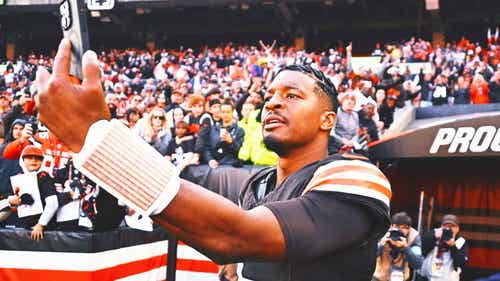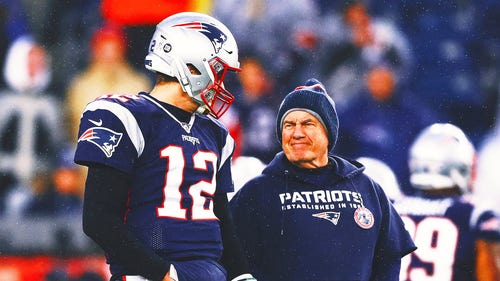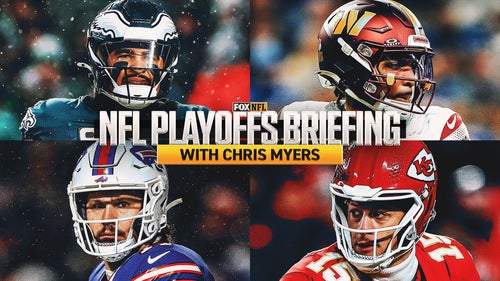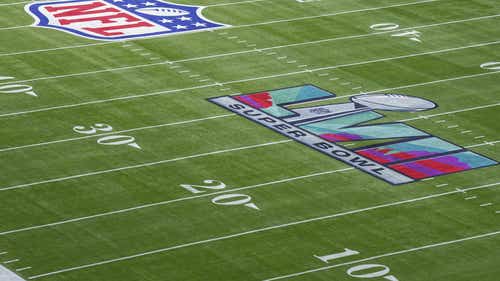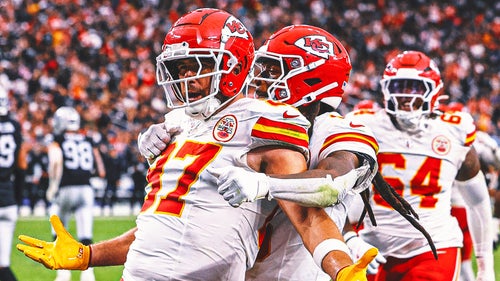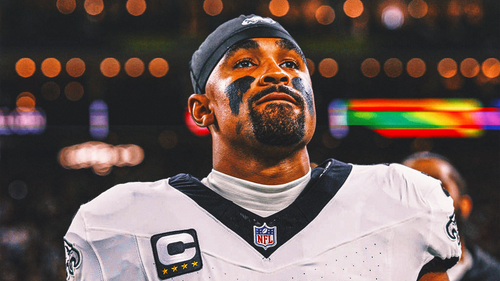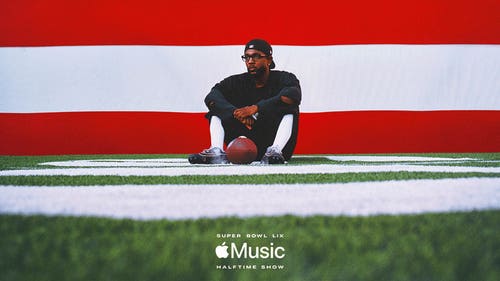Military prospects see NFL hopes rise after policy change
INDIANAPOLIS (AP) — Kyle Patterson feels fortunate.
The tight end from Air Force is living out a childhood dream as one of 319 invitees this week to the NFL’s annual scouting combine in Indianapolis. If all goes well between now and the end of summer, he, like dozens of other rookies, will be vying for roster spots.
Eventually, Patterson will fulfill the commitment he made to his country, too. For now, though, thanks to a provision included in last year’s omnibus spending bill, Patterson and linebacker Andre Carter II can defer their service until after pursuing NFL careers.
“We're allowed to go straight into the league and be able to defer our service, but the lower classes will have to serve a couple of years before they come back to the league — if that opportunity presents itself to them," Patterson said. “So kind of extremely grateful it will be grandfathered in and have that opportunity to go direct."
In Patterson's case, the late change could explain why he received one of the precious combine invitations.
In Carter's case, it could determine whether he just gets a chance to make a team or become the highest draft pick out of Army since Heisman Trophy winner Glenn Davis and offensive lineman DeWitt “Tex” Coulter were selected No. 2 and No. 7, respectively, in 1947.
The 6-foot-6, 256-pound edge rusher from Texas was once projected as a potential first-round pick and still might be selected in the top 50.
But the previous rule could have severely damaged Carter's draft stock, forcing teams to wait years before getting him on the football field. And when federal lawmakers realized the impact, a bipartisan coalition of congressional leaders moved quickly to make amends.
Even amid all the uncertainty, Carter never regretted choosing West Point — or making the five-year promise that comes with it.
“One (reason) was the ability to play Division I football and then also the opportunity to get a great, world-class education,” he said, explaining his decision earlier this week. “And then the opportunity to serve something bigger than yourself — serving in the Army and leading soldiers.”
Carter would be just the latest in a long lineage of NFL stars from American military institutions.
The list includes Hall of Fame quarterback Roger Staubach, a two-time Super Bowl champ with Dallas and the 1963 Heisman Trophy winner from Navy; three-time Super Bowl champ Chad Hennings, an Air Force grad and longtime defensive lineman with the Cowboys; and Coulter, who retired in 1950 to become a newspaper reporter and cartoonist only to return in 1952 and then make two Pro Bowls.
More recent names include offensive lineman Alejandro Villanueva of Army, tight end Garrett Griffin of Air Force and Malcolm Perry of Navy.
Many college and pro athletes grew up with parents or other relatives who served, giving them insight into those who choose the disciplined, regimented military lifestyle and how those lessons can be used on the football field.
“My dad has been on three deployments in my lifetime,” former Georgia offensive lineman Warren McClendon said Saturday in Indianapolis. “So just seeing the sacrifices he has made, that he made for his family, I definitely feel for him. It shows you what type of people they are, their character.”
Carter, a field artillery officer by training, also happens to be a defensive disrupter.
The lanky pass rusher recorded 85 tackles, 25 1/2 for losses, and 20 sacks over the past two seasons. In 2021, he broke Army's single-season record with 15 1/2 sacks but opted not to work out this week.
Patterson's projection is less clear.
While the Arizona native checked in at 6-foot-6, 260 pounds, with a hand measurement of 9 1/4 inches, he was used primarily as a blocker and caught just 18 career passes. Still, he comes with an NFL pedigree as the son of Shawn Patterson, Green Bay's second-round pick in 1988.
And while Carter and the younger Patterson took different paths to the draft than the other 317 players in Indy, both know what the future holds and that they're the beneficiaries of good decisions and good luck.
“It’s something I’m really grateful for, the opportunity not only to serve in the Army but also to have a chance to play in the NFL,” Carter said. “I want to represent the military academy, the Army, with the utmost respect while I’m playing.”
___
AP NFL: https://apnews.com/hub/nfl and https://twitter.com/AP_NFL

